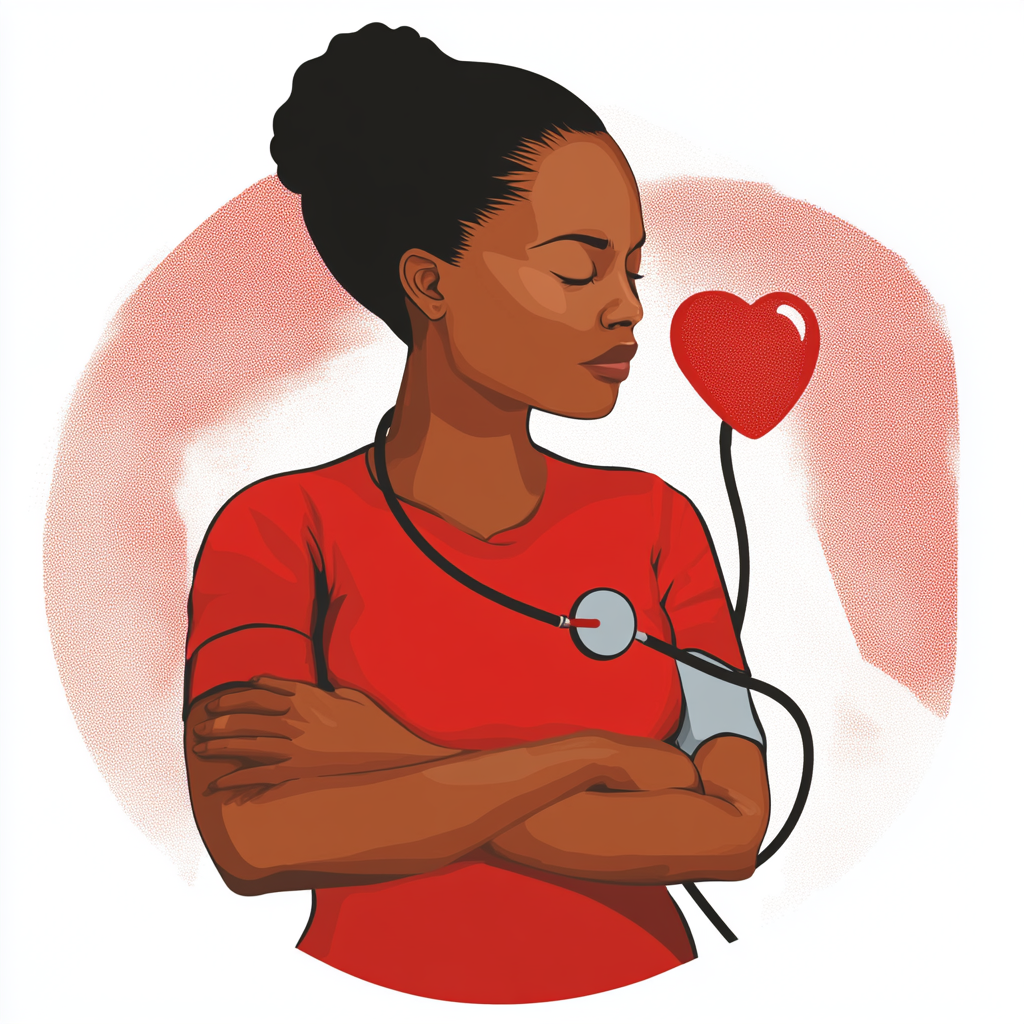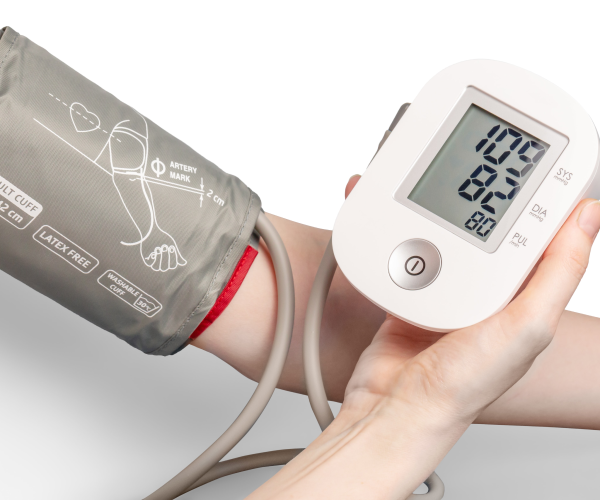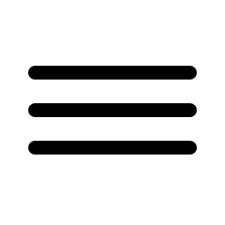Hypertension

What is Hypertension?
Hypertension is a condition that occurs when the force of blood pushing against the artery walls is consistently too high. It is also called high blood pressure. The arteries are channels through which blood gets to other body parts from the heart. Hypertension is when your blood pressure is consistently above the normal measurement.
You can go for a yearly checkup to know if your blood pressure is too high or normal.
The blood pressure reading has two numbers, the systolic and the diastolic blood pressure.
- Systolic blood pressure: This is the top number that measures the pressure of the artery walls when the heart contracts.
- The diastolic blood pressure: This is the bottom number that measures the pressure of the artery walls when the heart rests.

Patients are diagnosed with high blood pressure when they have ⩾140/90mmHg or ⩾130/80mmHg. Your diagnosis depends on where you live. Healthcare professionals in the U.S. identify high blood pressure when it reads 130/80mm/Hg. However, they define it as 140/90mmHg in Europe. Healthcare professionals in the U.S. follow the blood pressure guidelines issued by the American College of Cardiology and the American Heart Association. The blood pressure readings have four categories:
- Normal blood pressure: lower than 120/80mmHg.
- Elevated blood pressure – when the top number is between 120 and 129, and the bottom is below 80mmHg.
- Stage 1 hypertension – when the top number is between 130 and 139, and the bottom is between 80-89mmHg.
- Stage 2 hypertension – when the top number is 140mmHg or higher, and the bottom is 90mmHg or higher.
Symptoms and causes of Hypertension
Hypertension can cause damage to organs such as the heart, brain, kidney, and eyes without showing any signs or symptoms. The factors that can cause it are:
- Lack of regular physical activity
- Taking too much alcohol
- Eating unhealthy meals
- Smoking
- Age: People over 65 years of age are at more risk for high blood pressure
- Diabetes: Individuals suffering from diabetes are more prone to having high blood pressure.
- Genes: Having family members with high blood pressure can make you develop it.
It is possible to manage your blood pressure to get a healthy reading measurement that is less than 120/80mmHg.
Risk Factors for Hypertension
Factors that can increase the risk of developing hypertension include unhealthy diets, excessive intake of salt, low consumption of fruits and vegetables, smoking and drinking alcohol and becoming overweight. These risk factors can however be controlled or improved.
Risk factors that may not be modified include a family history of hypertension and other coexisting medical conditions like diabetes or kidney disease.
Effects of Hypertension
Complications of High Blood Pressure
Medical health problems can arise when high blood pressure is not properly controlled. You may experience deadly complications such as artery damage, brain damage, and vision loss if you do not manage your blood pressure. High blood pressure makes arteries tighter and less elastic, leading to blockages and restricting blood flow.
Other complications may include heart disease, kidney disease, and stroke.
Stroke and Brain Damage
Hypertension can block or break the arteries which supply the brain with blood and oxygen. When there is a lack of oxygen in the brain cells, it can cause an individual to end up with a stroke. Stroke, in turn, causes speaking and walking disability. It can also result in death.
Studies have shown that there is a new higher risk of dementia for someone with high blood pressure. It occurs later in the patient when there is a failure to control blood pressure.
Heart Problem
Hypertension decreases the flow of blood to the heart, which can cause heart attack or heart failure. The heart fails when it can not pump blood and oxygen to other body organs.
Eyes Problems
High blood pressure can cause loss of sight. Increase in blood pressure results in torn blood vessels in the eyes. It eventually leads to loss of vision.
How to Lower Blood Pressure
Dieting to lower blood pressure
There is a dieting plan made for individuals with high blood pressure to help them control it. It is called the Dietary Approaches to Stop Hypertension (DASH) eating plan. Foods listed in the diet plan include fruits, whole grains, low-fat dairy products, chicken without skin, fish, and vegetables. It was emphasized in the diet plan that sugar-filled drinks, snacks, red meat, and salt should be moderately consumed. Older people and African Americans are more prone to the effects of sodium (salt). The American Heart Association suggests that adults should choose low-sodium meals to control hypertension.

Source: https://www.homage.sg/health/high-blood-pressure-diet/
Treatment options for hypertension.
Hypertension, if untreated over time, can cause heart disease, heart attack, stroke, or death. Different treatments can help you manage or control your blood pressure. The proper treatment option is determined by your doctor based on the type of hypertension and what causes it.
Medicines used to control high blood pressure include:
- ACE inhibitors: Angiotensin-converting enzyme inhibitors help to relax blood vessels. This results in reducing your blood pressure. Examples include enalapril, lisinopril, and ramipril.
- Angiotensin-2 receptor blockers (ARBs): They are similar to ACE inhibitors. Examples include candesartan, losartan, and olmesartan.
- Diuretics: involves flushing excess water and salt from the body through urine. This can, however, lead to having low potassium and sodium after using it for a long time. Examples of this are indapamide and bendroflumethiazide.
- Calcium channel blockers: Examples are amlodipine and felodipine.
- Beta-blockers: Examples are atenolol and bisoprolol
Hypertension treatment includes both medication and lifestyle adjustments to help manage the condition. The primary goal of treating hypertension is to reduce your blood pressure to the normal reading.
How to manage high blood pressure
It is very important to live a healthy lifestyle to help reduce or keep your blood pressure under control.
Lifestyle modifications to manage high blood pressure include:
- Engage in physical activity or exercise regularly.
- Lower the intake of alcohol: Drinking too much alcohol can increase your blood pressure or increase your intake of calories.
- Avoid smoking: smoking cigarettes may increase the risk of heart attack or stroke.
- Take your medications as prescribed by a healthcare professional.
Another healthy lifestyle to powerfully manage high blood pressure is stress management. You can meditate, avoid overthinking, relax your muscles, or get adequate sleep to reduce stress.
Supplements and Vitamins
Studies show that vitamins and minerals are effective in reducing blood pressure. They include vitamins C, D, E, Calcium, Potassium, and Magnesium.
- Potassium: It is a good nutritional supplement to regulate blood pressure. This supplement is effective in people with high blood pressure.
- B vitamins such as vitamins B2, B9, and B6 may help reduce blood pressure in adults with heart diseases.
- Vitamin D: A high blood level of vitamin D may help reduce the risk of having high blood pressure.
- Magnesium: essential for regulating blood pressure. Magnesium supplements can be used to reduce blood pressure.
Prevention
You can prevent high blood pressure by living a healthy lifestyle. Prevention strategies to avoid or reduce the risk of having high blood pressure include:
- Regular exercise – to maintain a healthy body weight and lower your blood pressure.
- Reduce the consumption of sodium (salt): limit your salt intake to 1,000 milligrams (mg) per day. Afterward, you can proceed to reduce it to 1500 milligrams.
- Reduce the consumption of caffeine. It is found in tea, cola, and coffee.
- Keep a healthy weight: being overweight can raise the risk of having a heart disease.
- Feed well on food rich in potassium: eat enough food with high potassium such as potatoes, bananas, and avocados. It is important for your heart’s health.
- Eat a lot of fruits and vegetables.
If you are diagnosed with high blood pressure, you need to monitor and control your condition regularly and prevent heart disease. Continue your treatment plan, take your medications regularly, and discuss your progress with your healthcare provider. Also, ensure you get enough sleep and exercise regularly.
Reach out to your healthcare professional if you experience a severe headache, pain in your chest or back, weakness or numbness, and a change in your vision.
You need a regular checkup to monitor your blood pressure. It will help or encourage you to stay healthy. It is possible to check your blood pressure regularly with your healthcare professional.

 Browse Categories
Browse Categories 